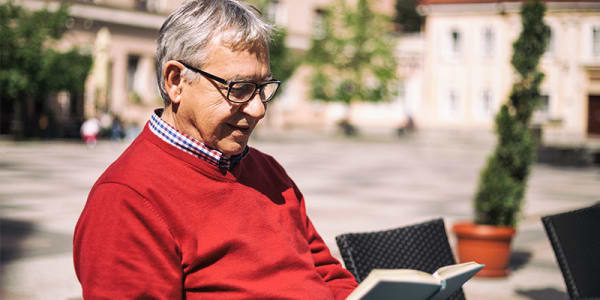Learn more about ActiveChristianity, or explore our theme pages for more

“I find myself in a position I haven’t chosen.”
My husband was physically strong and always ready to help others. That was until he was diagnosed with Parkinson’s.

Somehow when we are young and we are making plans for our lives, if we are healthy and strong it never occurs to us that one day this strength and health may be taken away. We look at old people and feel like they are a different type of people altogether. We won’t end up like them.
My husband was physically strong and was always ready to help others move house, plaster their ceilings or lay concrete. His vision for his retirement was to be able to have more time to babysit grandchildren, go on hikes and brew coffee in the great outdoors with his mates.
That was until he was diagnosed with a degenerative neurological disease in his 50’s that is gradually eroding his strength and balance, giving him pain and robbing him of his sleep. It is not fatal, but it is taking away the future he expected to have and, for the first time in his life, was tempting him to depression and fear of the future. As he said, “I find myself in a position I haven’t chosen.”
You could ask why God allows things like this to happen. Why a person who likes to be so helpful should be taken out of circulation in such a way, and so permanently.
Like what you’re reading?
God’s aim is to fit us for eternity
We must remember that God has the long view in mind. His priority isn’t making sure that we have a life that suits our wishes. His aim is to fit us for eternity, to shape us into what is useful to Him, to bring us to the point where we consciously give up what comes from our own will – however good it appears to be. Sometimes, God puts us in a situation where our natural tendencies are confronted on all sides, to help us see ourselves. He does this to people He loves.
As I watch my husband get weaker and see his world shrinking, I could think that life is so unfair.
But I don’t.
And my husband doesn’t either.
New land – divine nature
Joshua and Caleb got faith to go into a new land even though it was inhabited by giants. In contrast, all that the Israelites saw were the giants, and the problems, and the possible failure. And because of that they absolutely refused to enter:
“So all the congregation lifted up their voices and cried, and the people wept that night. And all the children of Israel complained …” Numbers 14:1-2.
And of course, this is how we feel naturally. Our fear of the future, our discomfort at facing what is unknown, binds us just as securely as if we were in prison, and we can initially react in just the same way as the children of Israel when faced with problems that feel like giants. Yet this new land is what God has chosen for us, even though it may come with problems. This is our land and the one that God wants us to move into. And He wants us to fight for it.
The only thing we can do when faced with a new and scary situation is to get strength from God to enter into what is required of us. When we ask God, He will breathe strength and power and courage into us, so we can become brave. We can face the future in triumph over our fears.
“Now thanks be to God who always leads us in triumph in Christ…” 2 Corinthians 2:14.
So, although my husband finds himself entering this strange new “country” which is inhabited by the giants of disability and uncertainty, he said recently:
“I don’t know what I would have done without getting Parkinson’s. God has been very good to me.”
This is how we will think when we follow Christ. These trials become the way we get divine nature. They become things that we wouldn’t have done without, because God leads us from our natural tendencies and brings us into “a land which flows with milk and honey.” A land that gives us peace and rest and fellowship with God and with one another.
Scripture taken from the New King James Version®, unless otherwise specified. Copyright © 1982 by Thomas Nelson. Used by permission. All rights reserved.



